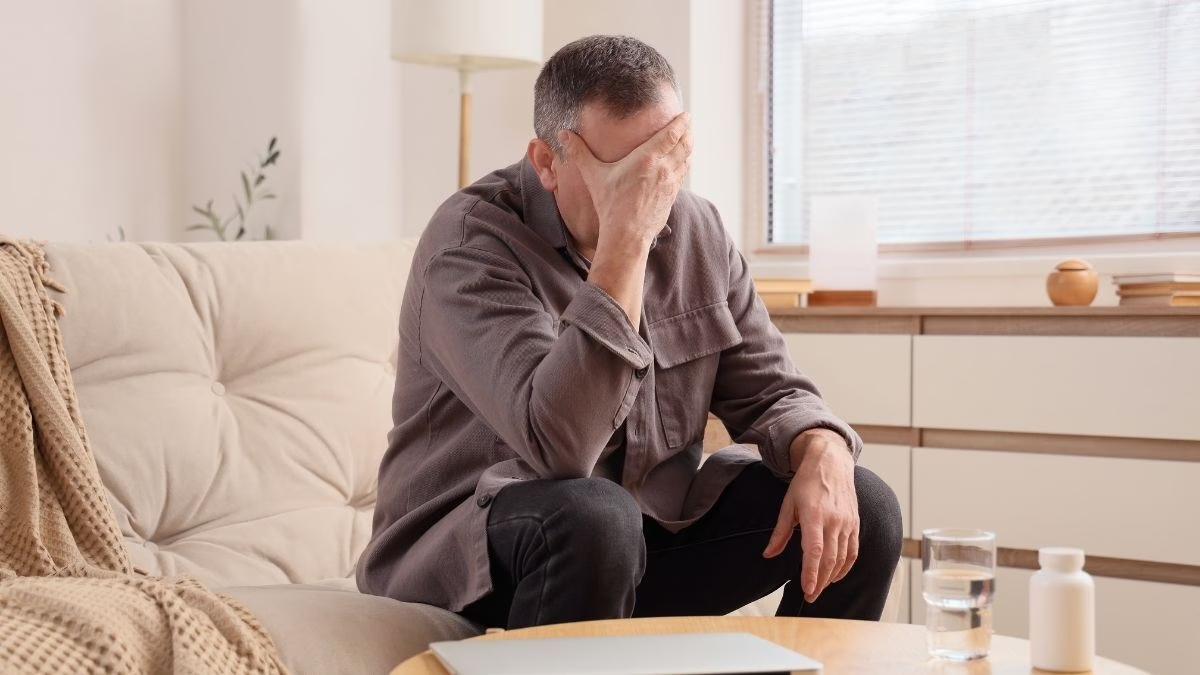Conflict is a natural part of every relationship. But when disagreements escalate quickly, feel constant, or leave both partners emotionally drained, you may be in what’s known as a high-conflict relationship. These relationships aren’t simply about arguing more often — they involve patterns of defensiveness, blame, and emotional volatility that make everyday life stressful and leave little room for closeness.
If you’ve ever felt like you’re walking on eggshells or repeating the same fights with no resolution, you’re not alone. High-conflict couples often deeply love each other yet feel trapped in cycles that erode trust and intimacy.
The good news is that specialized approaches, such as high-conflict couples therapy, can help break these patterns. In this article, we’ll explore what defines high-conflict couples, when therapy is needed, which therapeutic models work best, and practical strategies for how to resolve conflicts in a relationship more constructively.
What Is Considered a High-Conflict Relationship?
A high-conflict relationship is marked by intense, recurring disagreements that feel overwhelming and hard to resolve. While every couple argues, these conflicts don’t blow over — they repeat, escalate, and often become more hurtful over time. High-conflict couples may cycle through criticism, defensiveness, contempt, and stonewalling, four behaviors known to damage relationships when left unchecked.
It’s important to distinguish high-conflict relationships from abusive ones. Abuse involves coercion, domination, or control by one partner over the other. High-conflict couples, by contrast, are mutually reactive. Both partners may escalate arguments, struggle with emotional regulation, and contribute to the ongoing volatility. Therapy can be effective precisely because the issue is rooted in interactional patterns rather than one-sided control.
Common signs of high-conflict couples include repeated arguments about the same topics, heightened emotional reactivity, difficulty calming down after disagreements, and a sense of living in a state of constant tension. While the love and commitment may still be strong, these dynamics gradually erode emotional closeness, leaving partners feeling more like opponents than allies.
When to Pursue High-Conflict Couples Therapy
Not every conflict requires professional help. But certain red flags suggest that high-conflict couples therapy may be the right next step. These include:
- Persistent escalation: Fights start small but quickly spiral into shouting, defensiveness, or withdrawal.
- Lack of resolution: The same arguments return over and over without progress.
- Emotional dysregulation: One or both partners struggle to manage anger, sadness, or anxiety during conflict.
- Exhaustion and disconnection: The relationship feels draining rather than supportive.
Many couples try traditional therapy, only to feel it doesn’t address the intensity of their conflicts. High-conflict relationships often require therapy specifically adapted to their dynamics. This includes structured approaches that prioritize safety, slow down interactions, and give both partners tools to de-escalate before attempting problem-solving.
Therapeutic Approaches Tailored for High-Conflict Couples
Several therapy models have been adapted to support high-conflict couples. Each one focuses on shifting destructive cycles into opportunities for repair and reconnection.
- Collaborative Couple Therapy (CCT): This model emphasizes “recovery conversations,” where couples learn to turn fights into openings for intimacy. Instead of avoiding conflict, CCT helps partners engage in a way that fosters understanding, curiosity, and repair.
- Emotionally Focused Therapy (EFT): EFT addresses the attachment needs beneath conflict. By reshaping emotional responses, partners learn to express vulnerability rather than defensiveness, creating secure bonds. EFT is one of the most researched and effective models for high-conflict couples.
- Cognitive Reframing: Therapists often use cognitive-behavioral techniques to help couples reinterpret conflict. Rather than seeing disagreements as proof of incompatibility, reframing encourages empathy and perspective shifts: “My partner is overwhelmed, not attacking me.”
Each of these methods provides structure and support so couples can slow down reactivity, express needs more clearly, and begin to rebuild emotional safety.
Clinical Strategies for De-escalation and Repair
High-conflict couples therapy also teaches practical strategies that can be applied in the moment. These tools help interrupt destructive cycles and prevent conflicts from spiraling out of control. Here are a few effective therapy strategies:
- Interrupting escalation: When arguments heat up, couples learn to pause before saying things they’ll regret. This can look like stepping away for a bit to calm down and return with a clearer mindset.
- Teaching emotional self-soothing: Deep breathing, grounding exercises, or journaling can help each partner regulate before re-engaging in discussion.
- Reframing behavior: Instead of interpreting your partner’s silence as disinterest, you might reframe it as them feeling overwhelmed and needing time to think.
- Modeling repair and accountability: Therapists often guide couples in practicing small repair attempts — like acknowledging hurt feelings, apologizing, or suggesting a constructive next step. These micro-moments rebuild trust over time.
By practicing these strategies consistently, couples begin to create new habits of interaction that replace destructive cycles with healthier ones.
Evidence-Based Intervention Models
Research-backed methods offer strong outcomes for high-conflict relationships. Two of the most widely used are the Gottman Method and Integrative Behavioral Couples Therapy (IBCT).
- The Gottman Method emphasizes friendship, shared meaning, and managing conflict by reducing the “Four Horsemen” behaviors. Couples learn communication skills, repair strategies, and rituals of connection that minimize defensiveness and contempt.
- Integrative Behavioral Couples Therapy (IBCT) blends acceptance with behavioral change. Rather than trying to “fix” every difference, partners learn to accept certain traits while also developing constructive ways to discuss recurring issues. This balance creates long-term improvement in both satisfaction and resilience.
These evidence-based approaches have been shown to improve relationship satisfaction and reduce conflict intensity, especially when couples commit to ongoing practice outside of therapy sessions.
Healthy Conflict vs. Destructive Conflict
Not all conflict is bad. In fact, healthy conflict can strengthen a relationship when it’s handled with respect and care. The difference comes down to whether disagreements become opportunities to learn about each other or patterns that leave you feeling distant and resentful.
Healthy conflict is grounded in mutual respect. Partners are able to express frustration or disappointment without resorting to name-calling, blame, or shutting down. Instead, the focus stays on problem-solving and understanding each other’s perspectives. A healthy disagreement might include raised voices at times, but it ends with both people feeling heard, validated, and clearer about how to move forward. These types of conflicts can actually deepen intimacy because they show that the relationship can withstand tension without breaking.
Destructive conflict looks very different. Here, arguments quickly escalate into criticism, defensiveness, contempt, or stonewalling — behaviors that communication experts often call the “Four Horsemen.” In these moments, the goal shifts from resolving the issue to “winning” the fight or protecting yourself emotionally. Instead of leaving the conversation with clarity, both partners walk away hurt, resentful, or disconnected. Over time, destructive conflict erodes trust and creates a climate where partners feel unsafe sharing their true feelings.
Another important distinction is how each type of conflict ends. Healthy conflict often leads to repair attempts — an apology, a small joke to lighten the mood, or a gesture of comfort that signals, “We’re okay.” Destructive conflict, by contrast, often ends in silence, avoidance, or lingering resentment that builds into the next argument. Without repair, these negative cycles repeat and grow stronger, making it harder to break free.
In high-conflict relationships, destructive conflict tends to dominate. That’s why therapy often focuses on teaching couples how to slow things down, recognize their destructive patterns, and practice healthier ways of engaging. When partners learn to shift from destructive to healthy conflict, disagreements stop being a threat and start becoming a way to build resilience and closeness.
How to resolve conflicts in a relationship: a quick sequence that works
If you’re wondering how to resolve conflicts in a relationship, start with a simple four-step sequence: pause to regulate (step away for 20 minutes if needed), use a soft start-up (“I’d like to talk about… Is now okay?”), reflect and validate what you heard before responding, and make a concrete repair or next step (“Ouch and Oops,” a brief apology, or a plan for what you’ll each try next time). This process keeps discussions filled with empathy and actionable problem-solving instead of blame and escalation.
High-conflict couples don’t have to stay stuck. OurRitual offers couples structured, step-by-step tools to build emotional safety and reduce conflict at home.
Conclusion: Finding a Path Forward
High-conflict couples don’t have to stay stuck in destructive cycles. With the right therapeutic support, practical tools, and commitment from both partners, conflict can transform into an opportunity for growth. Whether through high-conflict couples therapy, evidence-based methods like EFT or IBCT, or simply practicing de-escalation skills at home, there are ways to create emotional safety and rebuild trust.
The most important step is recognizing when outside support is needed. Seeking couples therapy for conflict resolution isn’t a sign of weakness — it’s a proactive choice to protect your relationship and invest in a healthier future together.
FAQs
What defines a relationship as a "high-conflict relationship"?
A high-conflict relationship is defined by frequent, intense disagreements that escalate quickly and rarely resolve. Unlike typical conflicts, these cycles are persistent, emotionally charged, and often leave both partners feeling drained and disconnected.
How is high-conflict couples therapy different from regular couples therapy?
High-conflict couples therapy is specifically designed for couples who experience frequent escalations and emotional reactivity. It emphasizes de-escalation strategies, structured communication, and methods tailored to intense dynamics, while regular couples therapy may not address this level of conflict intensity.
What are the signs that a relationship needs conflict-focused therapy?
Signs include recurring arguments about the same topics, inability to resolve disagreements, emotional volatility during discussions, and a growing sense of disconnection or exhaustion in the relationship.
Can couples therapy for conflict resolution help if both partners are highly reactive?
Yes. Couples therapy for conflict resolution gives both partners tools to manage reactivity, such as self-soothing techniques, structured communication methods, and guided repair strategies. Progress depends on both partners’ willingness to practice these skills.
Which therapeutic methods work best for high-conflict couples?
Effective methods include Emotionally Focused Therapy (EFT), the Gottman Method, Collaborative Couple Therapy (CCT), and Integrative Behavioral Couples Therapy (IBCT). These models provide structure, teach emotional regulation, and help couples shift from destructive to constructive conflict cycles.
How does Emotionally Focused Therapy help high-conflict relationships?
EFT helps by addressing the attachment needs beneath conflict. Couples learn to share vulnerability instead of defensiveness, which creates secure emotional bonds and reduces the intensity of recurring arguments.
Why are individual sessions often part of therapy with high-conflict couples?
Individual sessions allow each partner to process their emotions, develop self-regulation skills, and explore personal triggers. This can make joint sessions more productive and reduce the likelihood of escalations.
Can therapy help couples turn conflict into intimacy?
Yes. With the right tools, conflict can become a pathway to intimacy. When couples learn to manage escalation, express needs vulnerably, and repair after disagreements, conflict shifts from being a threat to being an opportunity for growth and deeper connection.
























